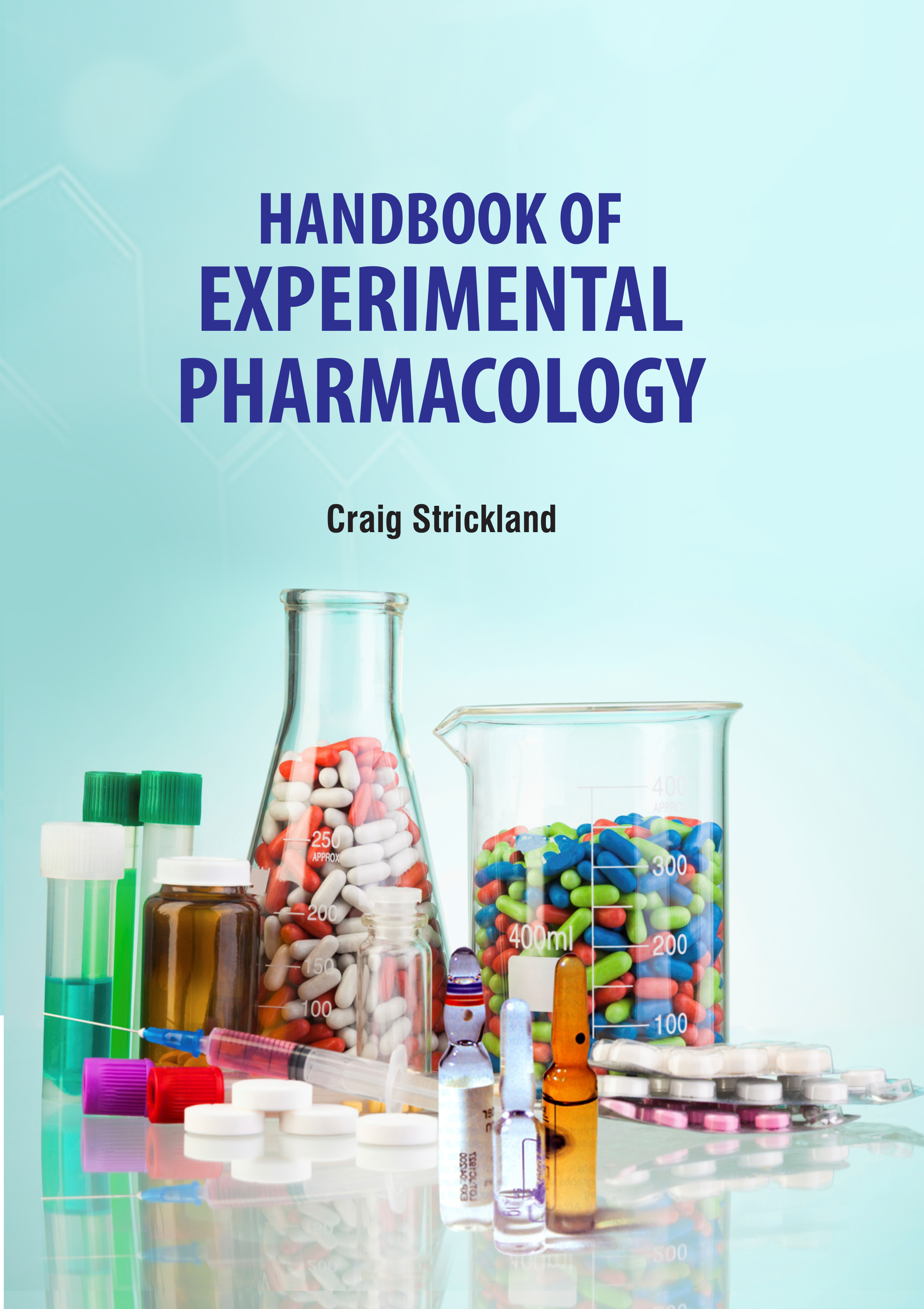
Handbook of Experimental Pharmacology
by Craig Strickland
| ISBN | 9789372426403 |
|---|---|
| Publisher | Digital Drive Learning |
| Copyright Year | 2026 |
| Price | $272.00 |

by Craig Strickland
| ISBN | 9789372426403 |
|---|---|
| Publisher | Digital Drive Learning |
| Copyright Year | 2026 |
| Price | $272.00 |
Pharmacology is the study of drugs. It involves examining the interactions of chemical substances with living systems, with a view to understanding the properties of drugs and their actions, including the interactions between drug molecules and drug receptors and how these interactions elicit an effect. Experimental pharmacology is a study through experimental design in controlled situations which involves testing of pharmacologically unknown substance and pharmaceutical products in human and animal. It deals with effects of various test substances studied on different animal species which is aimed at finding out safe therapeutic agent suitable for public health as well as mechanism and site of action of a test substance. The objective of acute toxicity study in animal is to provide the primary safety data to aid in the selection of a compound for clinical development, the toxicity study should be well designed to assess dose- biological response relationship and pharmacokinetics in the treated subject through adequate length of investigation time. Clinical and histopathology need to be evaluated at the earlier and termination time of acute toxicology for adequacy of public health safety. Experimental pharmacology is based on the null technique since the biochemical reactions that transform receptor activation to cellular response are largely unknown. Null methods obviate the requirement for understanding these mechanisms, i.e., it is assumed that equal receptor effects of drugs in any given system are translated in an identical fashion by the cell. Under these circumstances, equiactive ratios of drug concentration are independent of the cellular stimulus–response process. This text is the most comprehensive resource on the application of physical chemical principles in the various branches of pharmacy. It helps students, teachers, researchers, and manufacturing pharmacists use the elements of mathematics, chemistry, and physics in their work and study.